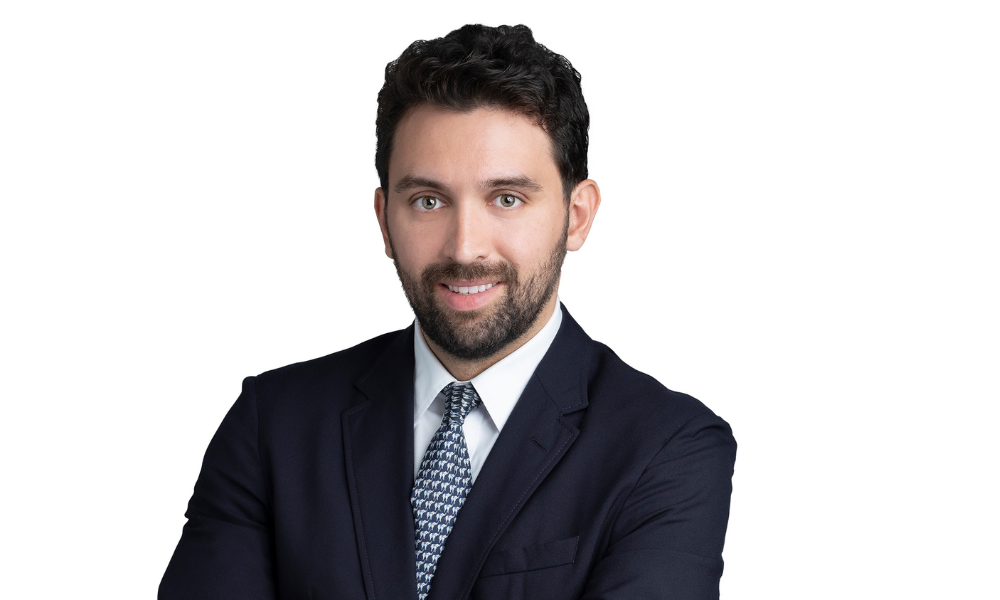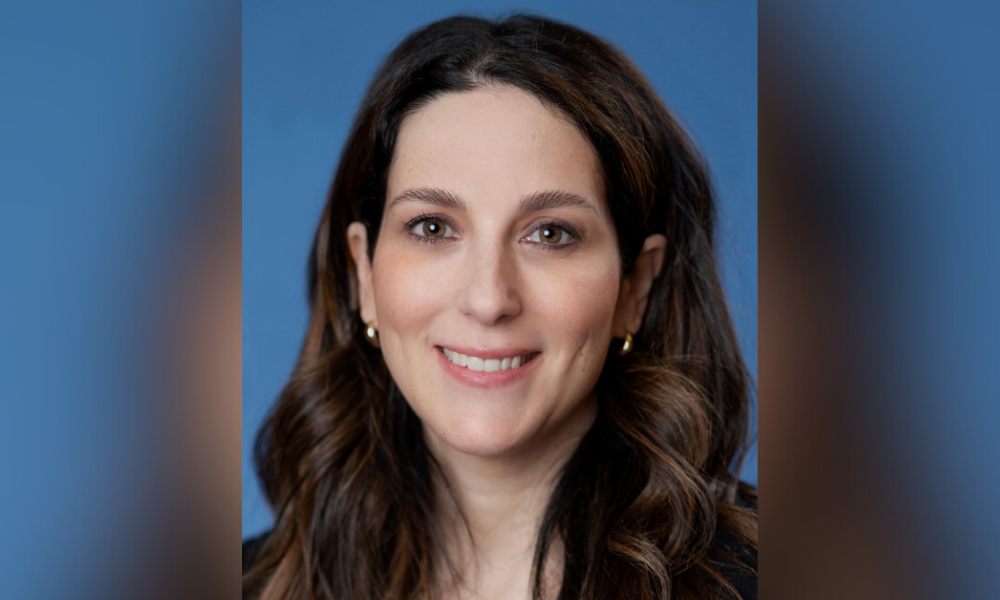Kyle Kuczynski didn’t originally intend to specialize in construction law. But a research assignment at his first firm cracked open the door to a specialty he now finds intellectually rich and practically essential. “The legal issues [were initially] … complex… [and it was challenging and interesting] to learn how the Construction Act alters the existing common law,” he says. More importantly, the work challenged him to learn the broader contours of construction, not solely the legal parameters of the Construction Act or industry agreements: Disputes are hardly “a normal breach of contract. [They are] usually based off of a somewhat complicated engineering, architectural, project management issue” which Kuczynski finds quite interesting.
Now senior legal counsel at Fitzrovia, Kuczynski sits inside of Canada’s largest purpose-built rental developer, a company that doesn’t just build – it acquires land, designs projects, manages construction, leases, and handles property and asset management in-house. With over 9,000 units completed, acquired, or under development, Fitzrovia operates far beyond the conventions of residential development. For a lawyer like Kuczynski, that has meant stepping far beyond conventional legal work.
He started in private practice, first at Pallett Valo LLP where he worked almost exclusively in construction litigation for contractors and suppliers, then later at Cassels Brock & Blackwell LLP. “I became a construction lawyer assisting clients in areas…outside of litigation [as well], what we call the ‘front end’,” he says. That front end – tendering, drafting, contract review, project advice – broadened his expertise and deepened his industry appeal. “I wanted to be your go-to resource for anybody in the industry… You need a contract? I’m your guy. You got sued? I’m your guy. You’re having issues…with [a] trade? I’m your guy.”
It’s a mindset that proved invaluable when he moved in-house. What drew him was the chance to get inside the business to see the full development lifecycle, not just its contractual flashpoints. “We’re building very exciting projects. I’m involved in more than just the legal side. I have a quasi-business-level role here, and I get to learn about absolutely every aspect of the project, including when then project turns into a residential community and home to hundreds of residents,” he says.
At Fitzrovia, that continuum is extensive. The company handles everything from acquisition and design to construction and leasing, even to hospitality and education. “We have a coffee bar/cocktail bar called 10 DEAN … We also have … Bloomsbury Academy, [a] Montessori-inspired early education [centre] in [some of] our buildings,” Kuczynski says. For a construction lawyer, that’s a dramatic shift from parsing lien claims to understanding bar operations or preschool regulations. “It definitely takes me outside of my typical niche area,” he adds.
But that’s part of the job now. Fitzrovia’s legal department – just three lawyers – is integrated across the business. The general counsel focuses on real estate and development, another lawyer covers acquisitions, and Kuczynski leads on construction. Yet each must stretch. “There’s a lot of learning, there’s a lot of adapting,” he says. “We are [expected] to chip in on all these different aspects.”
Fitzrovia handles most of its legal files in-house. When a matter is too complex or large, Fitzrovia brings in outside counsel – but not to hand over the file and walk away. “We…take full ownership of the file. We will do a lot of the work ourselves,” Kuczynski explains. “We expect our law firms to be part of our team, as opposed to ‘Here’s the file, take it and run.’”
That collaborative model doesn’t suit every firm, but the ones that adapt, he says, deliver better service. “When you collaborate with someone, and you develop a partnership, they will, in turn, understand our business model… and give us better legal services than they otherwise would have.”
The expanded role also reshaped his legal instincts. In private practice, the job was to lay out risks and options. In-house, he must weigh and decide. “You’re looking at it from a different lens,” he says. “My head [instictively thought] of, what are the legal risks?… But now I have to make business-level decisions or recommend them.” That shift forced him to refine one key skill above all: communication. “[My internal clients are] non-lawyers… You have to [communicate] in such a way that is understandable and…relates to the specific [business] need at the time.”
Kuczynski’s litigation instincts remain sharp, but his new responsibilities require him to think less like an advocate and more like a strategist who sees the entire chessboard. That includes the external landscape. Changes to Ontario’s Construction Act, now in its third major phase since 2018, alter how projects handle holdback release and lien rights. “The annual release of holdback and the annual expiry of lien rights…is going to be challenging, but…help our construction trade partners quite a bit,” he says.
And while he leaves macroeconomic commentary to others on the team, Kuczynski offers a blunt comparison between Fitzrovia and condo developers chasing volume. “They will try to cram as many units in as possible… When we build something, we own it after, and we intend to own it for the next 30 plus years,” he says. That means better materials, family-friendly spaces and more thoughtful design – “like the kitchen millwork, [they] are all … made in Italy” – because “they’re our units… it’s ours to manage for residents over the long-term.”
The intensity of the work, the breadth of the issues, the demands on time – it’s not for everyone. “If you’re going in-house for the expectation that you will have the typical nine to five… it’s certainly not Fitzrovia,” Kuczynski says. But for lawyers with stamina, a taste for complexity, and a curiosity for business, it’s a role where the legal questions are never just about the law. They’re about the building, hospitality, education, the resident experience – and the multi-generational plan.





